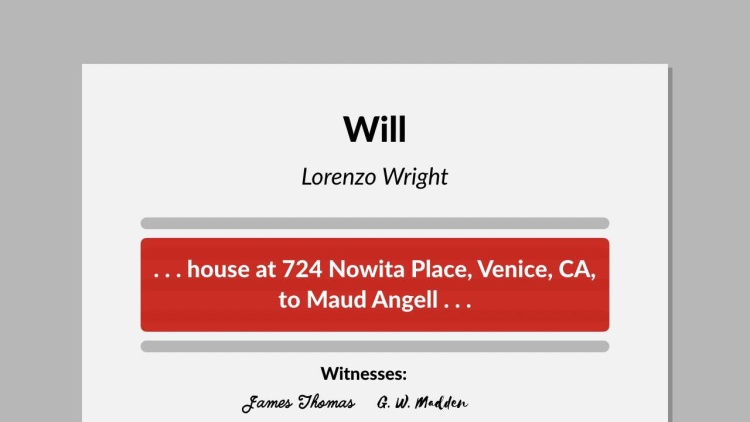In re Wright’s Estate
California Supreme Court
60 P.2d 434 (1936)

- Written by Sara Rhee, JD
Facts
Lorenzo B. Wright had Grace Thomas draw up his will. The will left his property to his friend, daughter, and granddaughter. Additionally, Wright left one dollar each to several other individuals. Wright died on May 2, 1933, and a petition to admit his will to probate was filed. Wright’s daughter contested the will. At the hearing, Thomas and the two subscribing witnesses testified that they each thought Wright was of unsound mind when he signed the will. As support, Thomas testified that she thought the will was odd because it gave one dollar each to several individuals. She also testified that she had considered Wright to be odd for a long time. The two subscribing witnesses only said they had thought Wright was not of sound mind for a long time before the will was made. Several other family members and acquaintances of Wright also testified that they believed Wright was of unsound mind. The testimony of these witnesses highlighted instances of abnormal behavior, including that he ran out of his house only partially clothed on several occasions, he picked out silverware from garbage, and he would fake his death to scare his neighbors. The probate court denied the petition on grounds that Wright lacked testamentary capacity when he signed the will.
Rule of Law
Issue
Holding and Reasoning (Seawell, J.)
What to do next…
Here's why 907,000 law students have relied on our case briefs:
- Written by law professors and practitioners, not other law students. 47,100 briefs, keyed to 996 casebooks. Top-notch customer support.
- The right amount of information, includes the facts, issues, rule of law, holding and reasoning, and any concurrences and dissents.
- Access in your classes, works on your mobile and tablet. Massive library of related video lessons and high quality multiple-choice questions.
- Easy to use, uniform format for every case brief. Written in plain English, not in legalese. Our briefs summarize and simplify; they don’t just repeat the court’s language.





